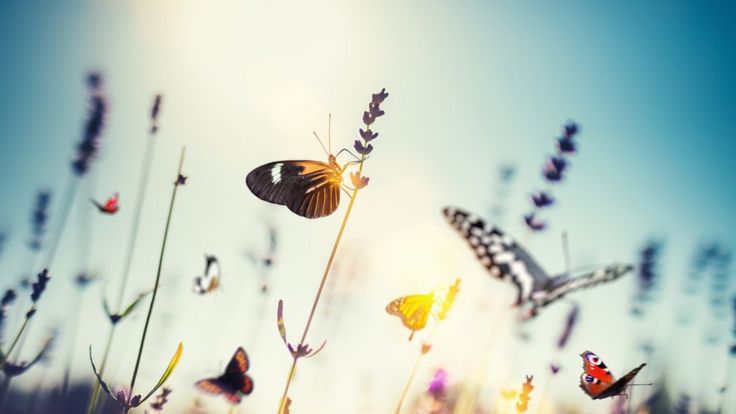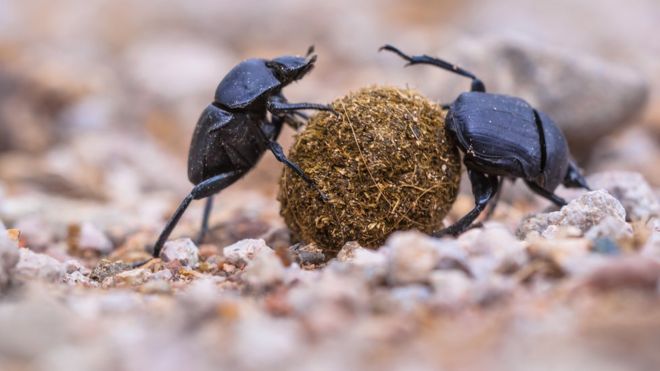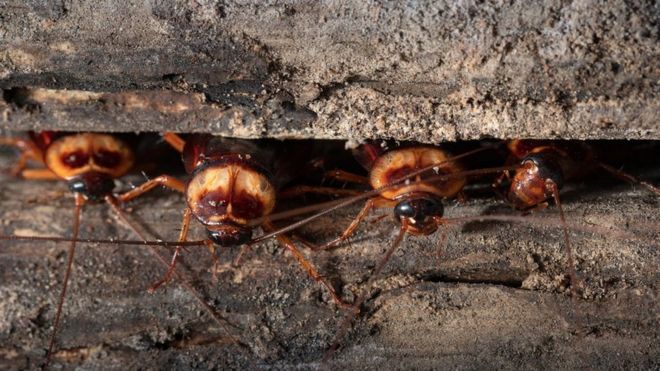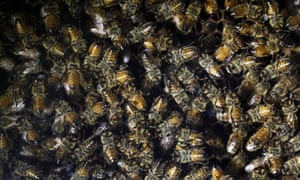One of the classic science-fiction treatments of the end of civilisation was The Death of Grass, by John Christopher, in which a mysterious sickness struck down all the grasses on which most of the world’s agriculture is based, from rice to wheat. In the end, politics among the survivors of plague, war and famine was reduced to a bitter fratricidal struggle over a defensible potato patch. Like most of the so-called “cosy catastrophe” novels, this could be criticised for optimism. Grim though a future of famine and the war of all against all might seem, the consequences were largely confined to humans.
The threatened extinction of insect populations around the world raises the prospect of a much more general catastrophe, which would implicate plants, birds, fish, small mammals, and everything else that depends on insects. That’s just the start. Other species, and we ourselves, depend on the animals and plants that need insects. When they go, we go. This is not just a greater catastrophe. It’s a much more plausible one. The most recent study concluded that insect biomass is decreasing around the world at a rate of 2.5% a year. At that rate, half the insects in the world will be gone in 50 years’ time, and all of them in a century – although no one will be keeping track of centuries then.
The chief driver of this catastrophe is unchecked human greed. For all our individual and even collective cleverness, we behave as a species with as little foresight as a colony of nematode worms that will consume everything it can reach until all is gone and it dies off naturally. The challenge of behaving more intelligently than creatures that have no brain at all will not be easy. But unlike the nematodes, we know what to do. The UN convention on biodiversity was signed in 1992, alongside the convention on climate change. Giving it the strength to curb our appetites is now urgent. Biodiversity is not an optional extra. It is the web that holds all life, including human life.
The two main expressions of greed that hasten this apocalypse are global warming and industrial agriculture. It appears that most of the damage is being done in the developed world by farming practices. The use of giant fields, devoid of shelter for insects of any sort at all, whether they are harmful to human interests or not, and where the plants are drenched in long-lasting pesticides, has been fatal for uncounted billions of insects. The effects of this kind of farming reach beyond the fields immediately affected, too. There has been a huge loss of aquatic insect species from the rivers into which the products of industrial agriculture are flushed by rain. Even in German nature reserves, which are by definition protected from the use of pesticides, there have been steep falls in insect populations because so many of the most widely used ones are persistent and prevent breeding. In the tropics, the steady rise of global temperatures is already devastating whole ecosystems, starting at the bottom with the insects. Last year we learned of the disappearance of almost all the ground-dwelling insects from a rainforest in Puerto Rico, and three-quarters of the species of the canopy.
Some governments have done some necessary things. The EU has banned neonicotinoid pesticides. But the necessary change also relies on individual action. As individuals we must consume less in every way, which helps with climate change. We must also change our food habits. To eat less meat and more organic is not just piety. A little self-restraint in this generation will make all the difference to our grandchildren.
Since you're here…
… we have a small favour to ask. More people are reading and supporting our independent, investigative reporting than ever before. And unlike many news organisations, we have chosen an approach that allows us to keep our journalism accessible to all, regardless of where they live or what they can afford.
The Guardian’s model for open, independent journalism is thriving. Financial support from more than a million readers powers our work and safeguards our editorial independence – thank you. Readers’ support powers our work, giving our reporting impact and safeguarding our essential editorial independence. This means the responsibility of protecting independent journalism is shared, enabling us all to feel empowered to bring about real change in the world. Your support gives Guardian journalists the time, space and freedom to report with tenacity and rigor, to shed light where others won’t. It emboldens us to challenge authority and question the status quo. And by keeping all of our journalism free and open to all, we can foster inclusivity, diversity, make space for debate, inspire conversation – so more people, across the world, have access to accurate information with integrity at its heart.
The Guardian is editorially independent, meaning we set our own agenda. Our journalism is free from commercial bias and not influenced by billionaire owners, politicians or shareholders. No one edits our editor. No one steers our opinion. This is important as it enables us to give a voice to those less heard, challenge the powerful and hold them to account. It’s what makes us different to so many others in the media, at a time when factual, honest reporting is critical.
Every contribution we receive from readers like you, big or small, goes directly into funding our journalism. This support enables us to keep working as we do – but we must maintain and build on it for every year to come



